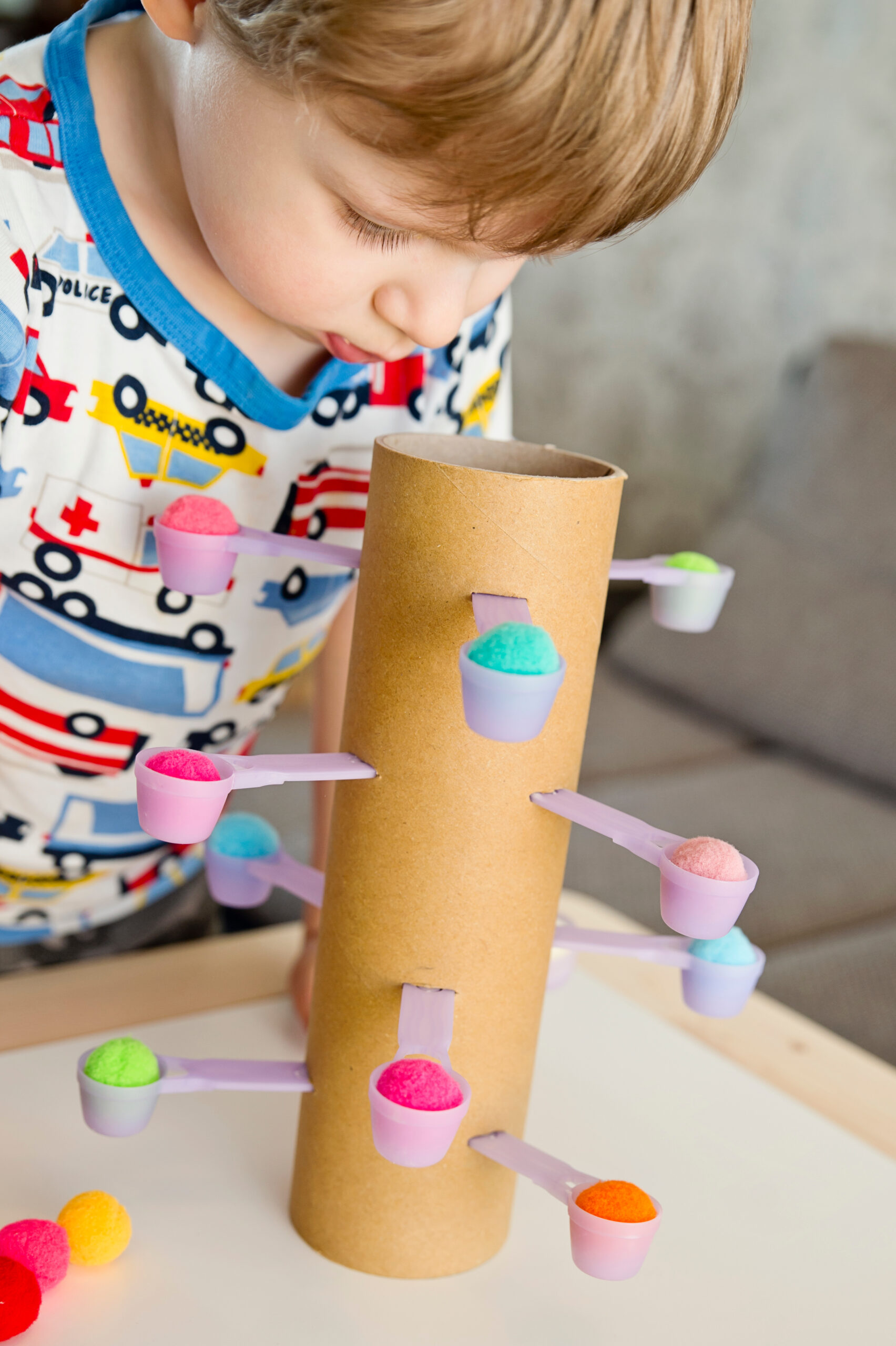Montessori Curriculum
Fostering Independent Learning and Growth
Montessori CASA Program (Preschool)
Ages 3 to 6
In our Casa program, we maintain a teacher-student ratio of 1:8, with the Head Teacher holding an AMI or MACTE Accredited (AMS/MTC/TMI, etc.) Montessori Teaching Diploma. Depending on class size, one or two assistant teachers, one of whom may also hold a RECE or Montessori Casa diploma, assist in the classroom. The mixed-age setup, with children aged 3 to 5, promotes peer learning and modeling, encouraging confidence and self-esteem through both observation and teaching.
The Montessori Casa classroom is divided into five primary areas: Practical Life, Sensorial, Language, Math, and Culture, supplemented by an art area and library corner. Music, French, Physical Education, and weekly librarian visits enrich the curriculum. Montessori materials are designed to encourage logical thinking and discovery, helping children develop sensory and motor skills as they progress through practical exercises, preparing them for more advanced learning.

Practical Life
Children learn essential self-care and environmental care skills through activities like pouring, polishing, and tying shoes. These tasks help develop coordination, concentration, and independence, boosting their confidence with each new accomplishment.
SENSORIAL lEARNING
Activities sharpen children’s sensory perceptions, helping them discriminate and categorize different stimuli. Through hands-on experiences with objects of varying shapes, sizes, and textures, they build a foundational understanding of physical properties and spatial relationships.
Language
Our program enhances language skills across reading, grammar, creative writing, and handwriting. Starting with basic letter sounds and progressing to sentence construction, children develop their vocabulary and self-expression.
MATHEMATICS
Using tangible materials, children explore number concepts and basic mathematical operations like addition and subtraction. They gain a deep understanding of numbers and their functions, laying the groundwork for future abstract mathematical thinking.
CULTURAL EXPLORATION
This area covers botany, zoology, science, geography, history, music, and art. Children explore these subjects through hands-on activities and Montessori materials, developing a broad understanding of the world and its diversity.
Additional activities
Children participate in Outdoor Education, field trips, and school visits. The Virtues Project supports character development and Grace & Courtesy lessons, teaching children respect and social etiquette.
Supporting Montessori Learning At Home
Parents can reinforce classroom learning at home through practical life activities, sensorial exploration, and language exercises. Encouraging children to take part in household chores, explore their environment, and engage in language and math games helps solidify their learning and fosters independence. Grace and Courtesy lessons can continue at home, teaching children to greet guests, use polite language, and show consideration for others.
Practical Life Activities
Parents can reinforce classroom learning at home through practical life activities, sensorial exploration, and language exercises. Encouraging children to take part in household chores, explore their environment, and engage in language and math games helps solidify their learning and fosters independence. Grace and Courtesy lessons can continue at home, teaching children to greet guests, use polite language, and show consideration for others.
- Tidy their room, sort clothes, and care for pets.
- Practice self-care, like brushing teeth and dressing.
Language & Math Activities
- Name objects, read stories, and play sound games.
- Practice writing letters and numbers, and explore counting and quantity.
Sensorial Expression
- Identify colors and shapes, and describe textures.
- Listen to sounds and taste different foods.
These activities help children apply their classroom learning to real-world situations, enhancing their understanding and skills.